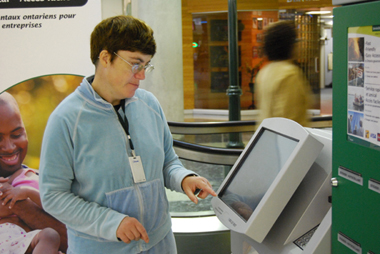
Dignity: a customer with a disability is valued and deserving of effective and full service.
Independence: freedom from control or influence of others — freedom to make one's own choices.
Integration: customers with disabilities fully benefit from the same services, in the same place and in the same or similar way as other customers
Transcript
What do the principles of dignity, independence, integration and equal opportunity mean?
Dignity means a customer with a disability is valued and deserving of effective and full service. People with disabilities are not treated as an afterthought or forced to accept lesser service, quality or convenience.
Independence means freedom from control or influence of others — freedom to make one's own choices. In other situations, it may mean the freedom to do things in your own way.
Integration means customers with disabilities fully benefit from the same services, in the same place and in the same or similar way as other customers. Integration means that policies, practices and procedures are designed to be accessible to everyone including people with disabilities.
Equal opportunity means having the same chances, options, benefits and results as others. People with disabilities should not have to make significantly more effort to access or obtain service. They should also not have to accept lesser quality or more inconvenience.
Think of how you may already demonstrate the principles of dignity and independence, integration and equal opportunity in providing services to your customers with disabilities. Evaluate how you could do things differently if needed.